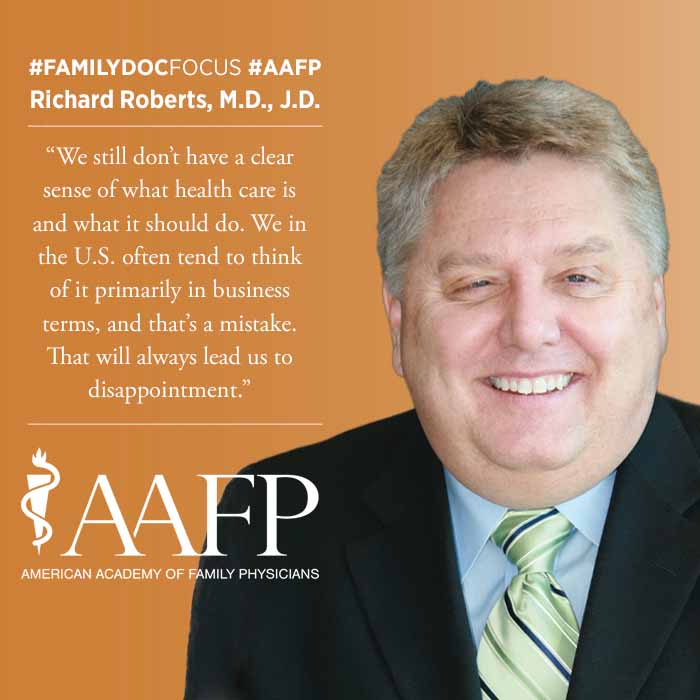Taking the Family Medicine Message to the Masses
October 29, 2018 08:47 am David Mitchell – Richard Roberts, M.D., J.D., retired in September from both his rural practice in Belleville, Wis., where he cared for patients for 32 years, and his role as a professor of family medicine at the University of Wisconsin School of Medicine and Public Health in Madison.
Roberts, however, said he's nowhere near finished with family medicine. That's why the 65-year-old found himself sharing a stage in Luxembourg with physicians, scientists, educators and others during an Oct. 26 TEDx event focused on the future.
"I've had a bully pulpit over the years to tell leaders how screwed up our health care system is," said Roberts, a past president of the AAFP, the AAFP Foundation and Wonca, the World Organization of Family Doctors. "I've done my share of speeches to policymakers, and that might have made a small impact, but it's not sufficient. My goal now is to speak to the public at large about why we struggle with health care as we do. We have a system that doesn't ensure everyone has access to care. And it's built on an incorrect, perverse idea that disease is more important than people."
During an interview at the recent AAFP Congress of Delegates in New Orleans, where he served as parliamentarian, Roberts said he has at least one book to write -- one about the lessons he learned in his extensive travels as a state, national and global leader in family medicine.
"Any time I was asked to go speak somewhere, they would ask, 'What do you want to do? What tourist thing do you want to see?'" he said. "I'd say, 'I’m not much for shopping or tourist sites. Set me up so I can watch a doc with patients and meet with students, residents and young physicians.'"
Starting during his term as a state medical society president in the 1990s, Roberts said he has sat in on more than 5,000 patient encounters, covering all 50 states and more than 50 countries.
"It's time for me to reflect on all the things I've learned in the United States and around the world as a family doctor," Roberts said. "These stories could be helpful in understanding how health care is similar -- and different -- in different places. We still don't have a clear sense of what health care is and what it should do. We in the U.S. often tend to think of it primarily in business terms, and that's a mistake. That will always lead us to disappointment."
Roberts has at least one more major project ahead of him. Starting in November, he'll serve as a consultant for the new Adventist Health Ukiah Valley Family Medicine Residency Program. That program, which is affiliated with the University of California Davis School of Medicine, will welcome its first class of residents in 2019.
